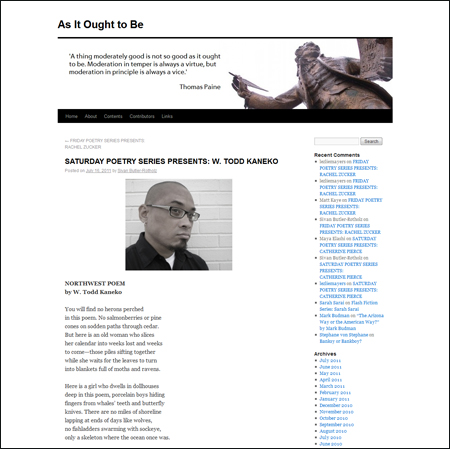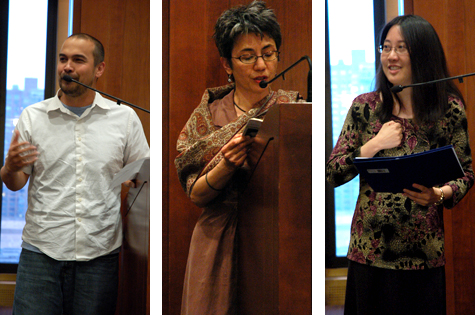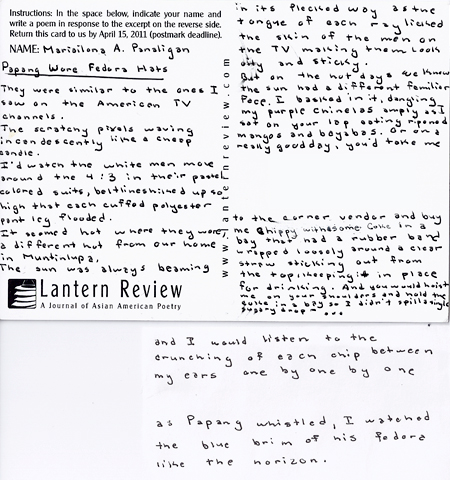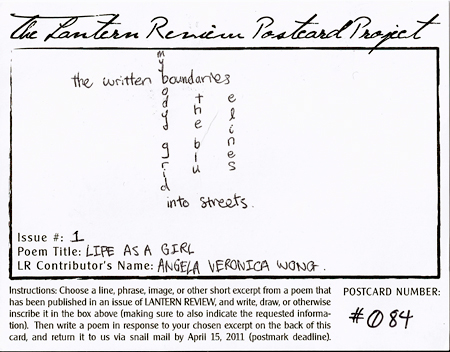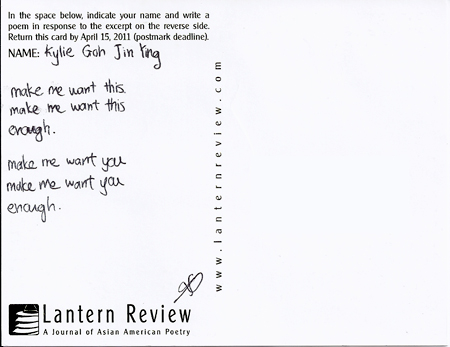It’s that time of year again: we are once more looking for a handful of talented bloggers to add to our staff for next year. Interested in writing for us? Apply by August 5th at 11:59 EST. Please see our opportunities page for full details and application instructions.
Positions Available
Book Reviewers: write short reviews of recent poetry collections and anthologies (lists of books are generally pre-specified, but reviewers also have flexibility to choose their own).
Literary Magazine Reviewers: review poetry from recent issues of literary journals such as The Asian American Literary Review, Kartika Review, Cha: An Asian Literary Journal, and Doveglion Press.
Interviewers: conduct interviews with poets, artists, and editors; may also be asked to help coordinate guest post series (e.g. our May “Process Profiles” series).
Columnists: We are interested in applications for columnists on a more limited basis (filling Reviewer and Interviewer positions is of a higher priority for us at the moment). Columnists choose a specialized topic to blog about on a monthly basis (e.g. performance poetry, profiles of digital and multimedia poets/their work, small press publishing, poetry in the classroom, etc.). We’re open to many ideas for columns (the more focused the better). If you are interested in a columnist position, please take a look at past successful columns (including Kelsay Myers’ “Becoming Realer” column and Simone Jacobson’s “Sulu Spotlight” column) and include a pitch in your cover letter that summarizes your idea for a column, proposes a title, and suggests one or two sample post topics.
* * *
Bloggers commit to writing one post per month during our academic year term (Sept through June, not including blog hiatuses). More details and application instructions are available on our opportunities page.
We’re also still looking for an intern—so if think that you or someone you know would make a good candidate, please refer to that listing on opportunities page, as well!

